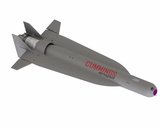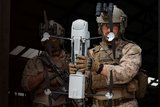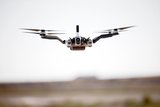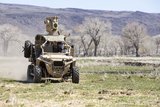PHASA-35 flies in Australia
The solar-electric Persistent High Altitude Solar Aircraft (PHASA-35) has completed its first flight, BAE Systems announced on 17 February.
Designed to operate unmanned in the stratosphere above the weather and conventional air traffic, PHASA-35 has the potential to stay airborne for up to a year at a time.
With a 35m wingspan, the aircraft has been designed and built as part of a collaboration between BAE Systems and Prismatic. Sponsored by the UK’s Defence Science and Technology Laboratory and Australian Defence Science and Technology Group, the flight trials took place at the Royal Australian Air Force Woomera Test Range in South Australia.
As a high altitude long endurance vehicle, PHASA-35 is powered by the sun during the day and by batteries overnight. The aircraft is designed to provide a persistent, stable platform for monitoring, surveillance, communications and security applications. When connected to other technologies and assets, it will provide both military and commercial customers with capabilities that are not currently available from existing air and space platforms. The UAS also has the potential to be used in the delivery of communications networks including 5G, as well as provide other services, such as disaster relief and border protection.
Further flight trials are scheduled for later in 2020, with the possibility that the aircraft could enter initial operations with customers within 12 months of the flight trials programme completion.
Related Equipment in Defence Insight
More from Uncrewed Vehicles
-
![Cummings Aerospace showcases Hellhound loitering munition designed for US Army’s LASSO programme (video)]()
Cummings Aerospace showcases Hellhound loitering munition designed for US Army’s LASSO programme (video)
Cummings Aerospace presented its turbojet-powered Hellhound loitering munition at SOF Week 2025, offering a man-portable solution aligned with the US Army’s LASSO requirements.
-
![SOF Week 2025: PDW unveils attritable FPV drone for SOF operations at scale]()
SOF Week 2025: PDW unveils attritable FPV drone for SOF operations at scale
PDW has revealed its Attritable Multirotor First Person View drone at SOF Week 2025, offering special operations forces a low-cost, rapidly deployable platform for strike and ISR missions, inspired by battlefield lessons from Ukraine.
-
![SOF Week 2025: Teledyne FLIR white paper provides guidance on reusable loitering munitions]()
SOF Week 2025: Teledyne FLIR white paper provides guidance on reusable loitering munitions
Teledyne FLIR is highlighting the emerging requirements for 'recoverable and re-usable' loitering munitions across the contemporary operating environment during this week’s SOF Week conference in Tampa, Florida.
-
![SOF Week 2025: Kraken Technology group debuts K3 Scout USV in North America]()
SOF Week 2025: Kraken Technology group debuts K3 Scout USV in North America
High-performance maritime industry player Kraken Technology Group, based in the UK, has used the SOF Week conference in Tampa, Florida this week to debut its K3 Scout uncrewed surface vessel (USV) to the North American market.
-
![Palladyne AI and Red Cat to demonstrate capabilities for autonomous drone swarms to the US military]()
Palladyne AI and Red Cat to demonstrate capabilities for autonomous drone swarms to the US military
Red Cat and Palladyne AI recently conducted a cross-platform collaborative flight involving three diverse heterogeneous drones.
-
Jammer resistant drone designs spark search for countermeasures
The Russia-Ukraine conflict has driven another stage of evolution for drones and the counter measures to defend against them.

























